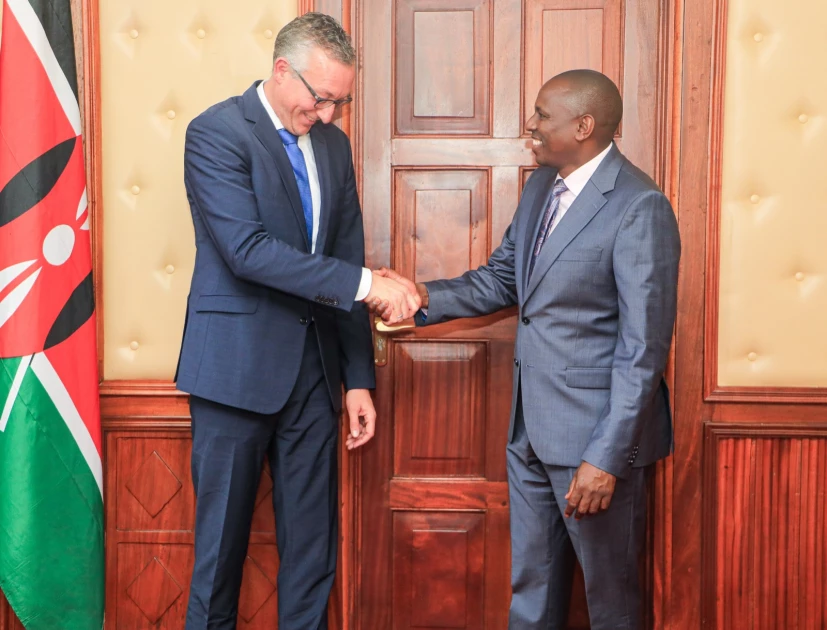Kenya and Germany have agreed to work together to improve skilled labour, strengthen the agricultural sector, and foster stable political ties.
The collaboration between the two countries arose from a meeting on Thursday at the Kenyan parliament between National Assembly Majority Leader Kimani Ichungwah and German Ambassador to Kenya Sebastian Groth.
According to a press release issued following the meeting, the two discussed the mutual benefits of collaboration between the two countries, with a focus on Kenya’s Technical and Vocational Education and Training (TVET) centres, the agricultural industry, and political stability.
“One of the key topics of the meeting was the enhancement of Kenya’s TVET centers to meet the demands of the German labor market.” the statement reads
” Germany is currently in need of approximately 400,000 skilled laborers annually, and Kenya has emerged as a promising partner in fulfilling this demand”.
During their meeting on Thursday, the leaders agreed that improving the quality of TVET education would provide a steady supply of competent human resources to Germany’s labour market.
To facilitate the process, 60 TVET centres will be chosen for comprehensive enhancements that will align their curriculum with the needs of various industries in Germany.
The teaching of the German language will also be prioritised, as language proficiency is essential for seamless integration into the German workforce.
According to the statement, Kenya has emerged as one of six countries on Germany’s radar for skilled labour market collaboration.
The partnership will benefit both countries, with Kenya gaining the opportunity to address unemployment by channelling its skilled workforce towards international opportunities, and Germany efficiently meeting its labour demands.
The two leaders also talked about the Agricultura sector, specifically strategies for increasing value addition in key areas like coffee, tea, and dairy.
“By focusing on processing and refining these products within the country, Kenya aims to increase its export potential and generate higher value from its agricultural resources. ” the statement reads
This collaboration holds the promise of creating additional job opportunities within the agricultural value chain while enhancing the country’s economic resilience,”



